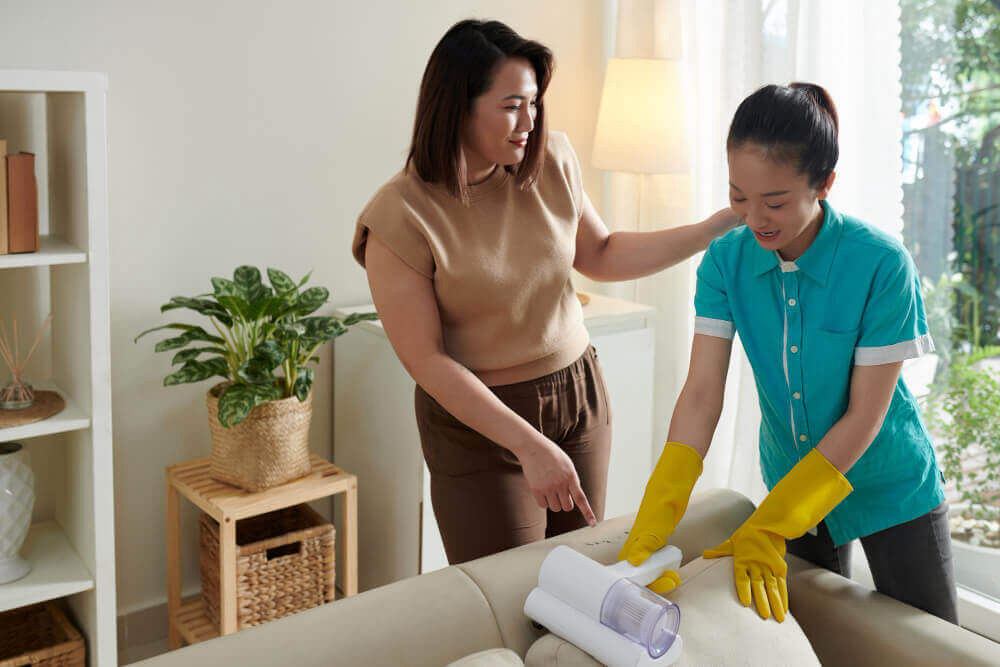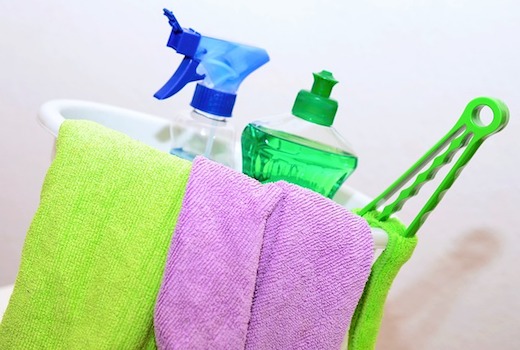
Hiring a domestic helper is a valuable investment in maintaining a well-managed home. Whether they are assisting with childcare, elderly care, or household chores, proper training ensures efficiency and harmony. Every helper deserves respect and fair treatment, and as an employer, fostering a positive working relationship will benefit both parties.
By providing clear instructions, setting expectations, and offering support, you can create a productive and comfortable environment for your domestic helper. Frequent turnover can disrupt household routines, so training your helper well from the beginning will help build long-term stability.
To ensure your household runs smoothly, here’s how to train and manage your domestic helper effectively.
Ensuring a Smooth Start for Your Domestic Helper
Allow Time for Transition
Once you’ve hired a domestic helper, allow them time to adjust to their new environment. If your helper is responsible for childcare, your baby will need time to get used to them. It’s normal for babies to experience anxiety initially, but with patience and consistency, they will adapt. Similarly, if your helper is caring for elderly family members, they may initially struggle to build trust, especially if the elderly person was accustomed to a previous helper. Encouraging patience and providing clear instructions will help in this transition.
Set Clear Expectations
Providing a clear routine and expectations is essential. Writing down a daily schedule and household rules and placing them in a visible spot helps the helper stay organized. If your domestic helper struggles with English, consider translating key instructions into their native language. Clearly defining tasks such as cleaning, laundry, cooking, and childcare prevents misunderstandings and ensures that they meet your expectations.
Train on Household Tasks
Hands-on training is necessary for household chores and helps her to learn the basic knowledge to be a great housekeeper. Demonstrating how to use household appliances, such as washing machines, vacuum cleaners, and kitchen equipment, will make their tasks easier. Guide them on how you prefer specific tasks to be done, such as cleaning certain areas of the house or folding laundry a particular way. Give them time to practice and adjust to your methods, allowing them to work more efficiently in the long run.

Building a Strong Working Relationship
Communicate Effectively
Open and respectful communication is the key to a positive employer-helper relationship. Provide constructive feedback rather than criticism. Acknowledge tasks done well and politely correct mistakes. Encouraging them to ask questions if they are unsure about anything will create a healthy work environment. Using simple and clear instructions will also help them understand their responsibilities better.
Ensure Safety and First Aid Knowledge
Training your helper on safety and first aid is crucial. Educate them on emergency procedures, including fire safety, CPR, and handling injuries. If your household includes elderly members or young children, ensure they understand the proper use of medications and first aid treatments. Familiarizing them with emergency contact numbers is also important.
Teach Cooking Preferences
If your helper is responsible for cooking, guiding her on your family’s food preferences and dietary restrictions will ensure everyone is satisfied. Providing recipes and allowing them to practice under supervision will help them build confidence. Giving feedback on taste and presentation can further refine their skills and improve meal preparation.
Respect Their Well-Being
A well-rested and well-fed helper will perform better and stay healthier. Ensuring they receive at least seven to eight hours of sleep, adequate meal breaks, and access to nutritious food will contribute to their overall performance. Regular rest days, as per employment regulations, should also be observed.
Creating a Productive and Happy Household
Establish House Rules and Privacy Boundaries
Defining house rules and privacy boundaries from the start helps maintain harmony. Specifying household rules, such as knocking before entering rooms, using mobile phones during work hours, and maintaining cleanliness, will prevent misunderstandings. Encouraging mutual respect will create a comfortable living and working environment for everyone.
Encourage Initiative and Responsibility
Allowing your helper to manage their tasks independently fosters confidence and efficiency once they are familiar with the routine. Trusting them to take initiative in organizing and maintaining the household will make them feel valued. Giving them opportunities to suggest improvements in their workflow can also boost efficiency.
Recognize and Reward Good Work
Showing rewards for their hard work builds trust and encourages them to stay committed to their role. Small gestures of appreciation, such as a bonus, a day off, or a thoughtful gift, can boost morale and encourage better performance. Maintaining a balance by not being overly dependent on the helper for trivial tasks allows other family members to contribute to household chores, ensuring that your helper does not feel overwhelmed.
Handle Conflicts Professionally
If you are unsatisfied with your helper’s performance, addressing the issue calmly and professionally is the best approach. Avoiding verbal or physical abuse is essential, as it is not only unethical but also illegal in many regions. If problems persist, consulting your maid agency for advice or mediation can help find a suitable solution.
Ending Note
A well-trained domestic helper contributes significantly to household harmony and efficiency. By investing time in training, setting clear expectations, and fostering mutual respect, you ensure a positive and long-term working relationship. Treating your helper fairly, communicating openly, and providing a supportive environment will lead to a happy and productive home.



